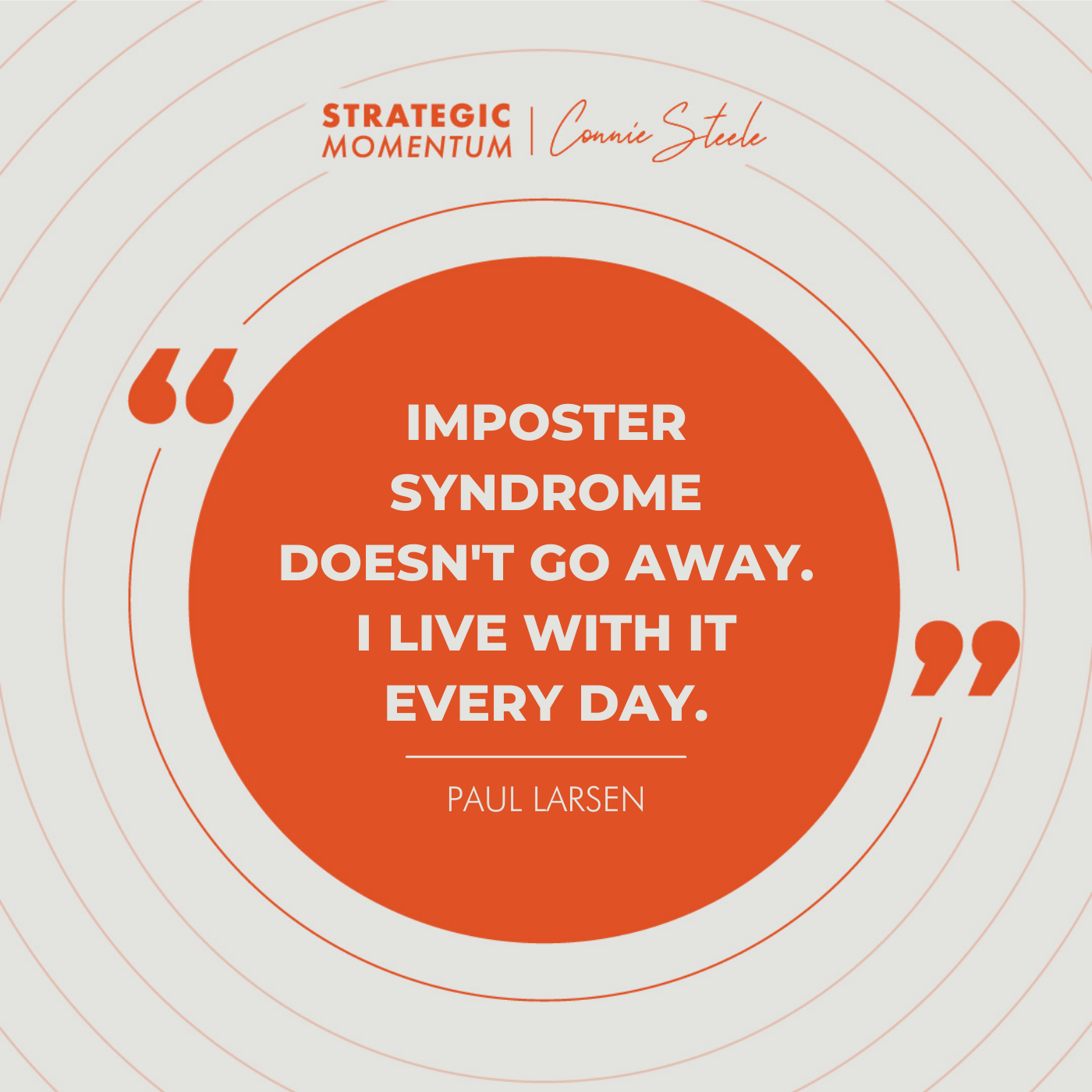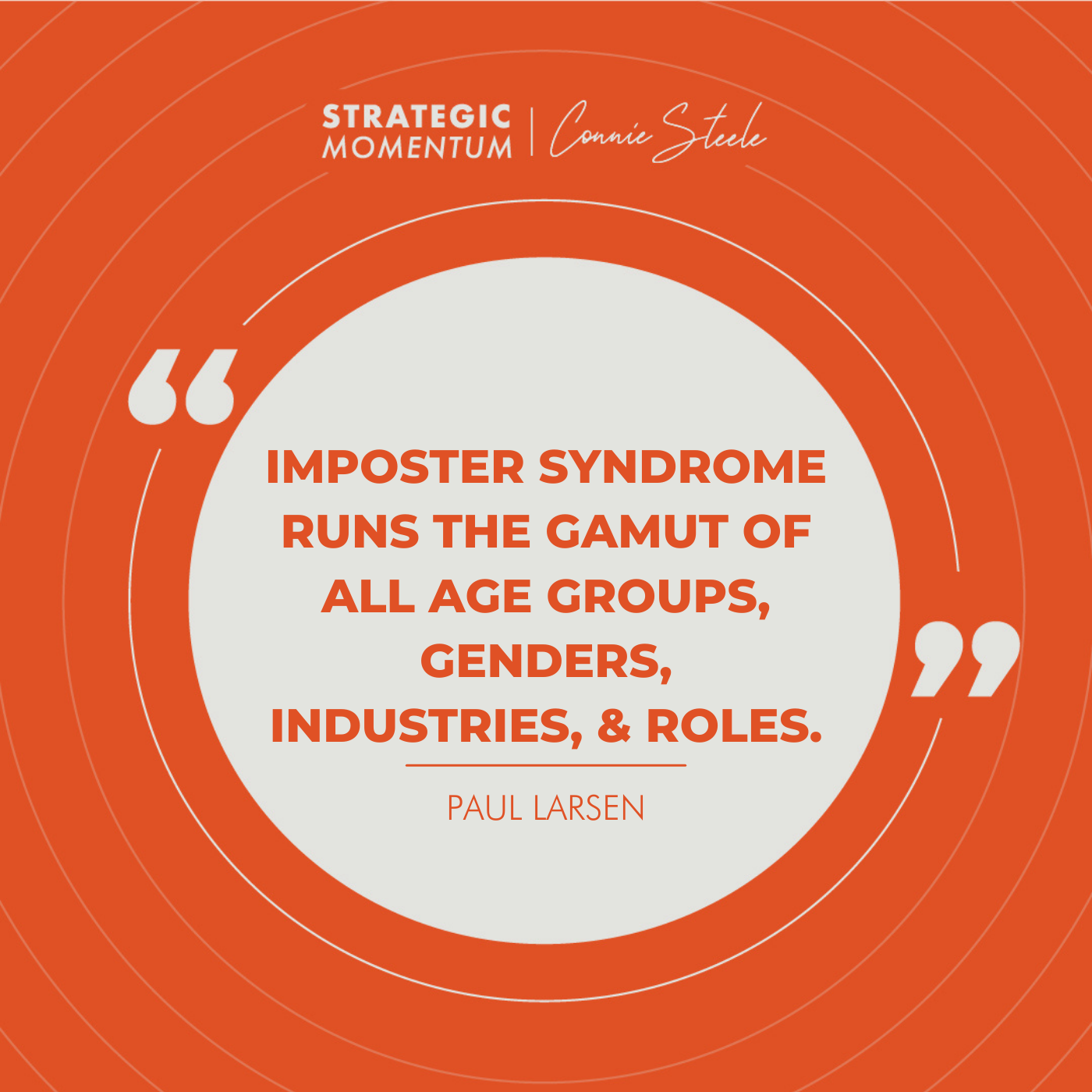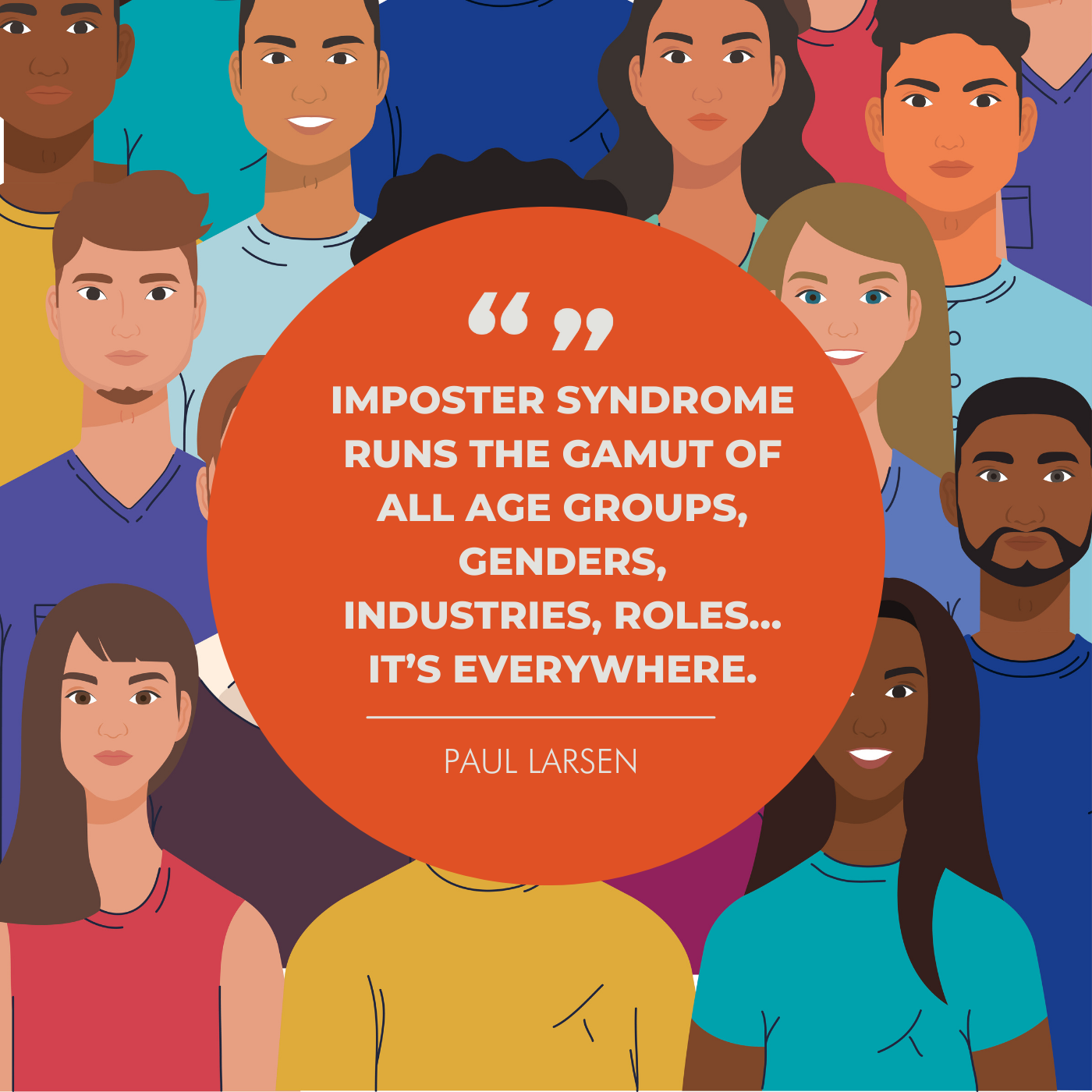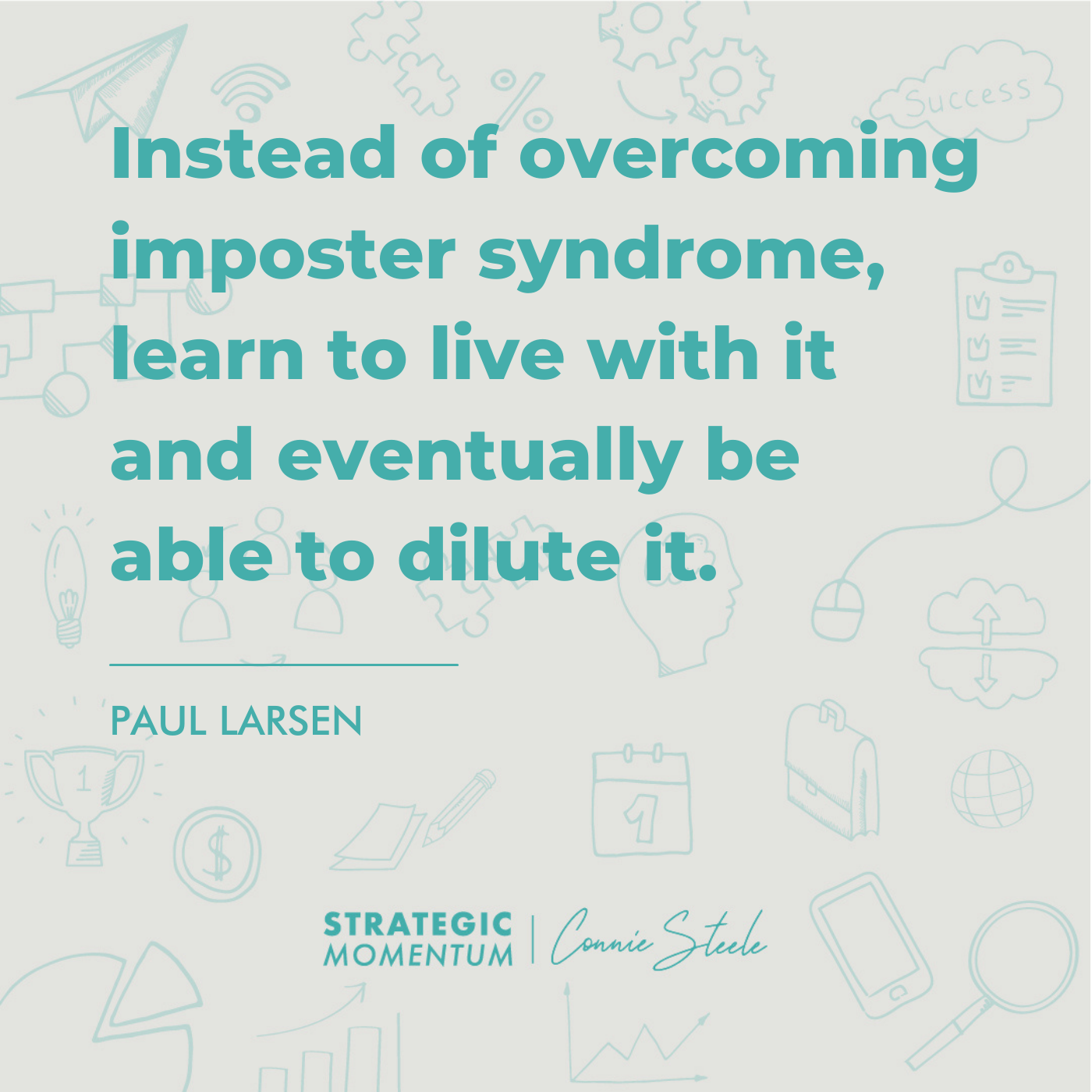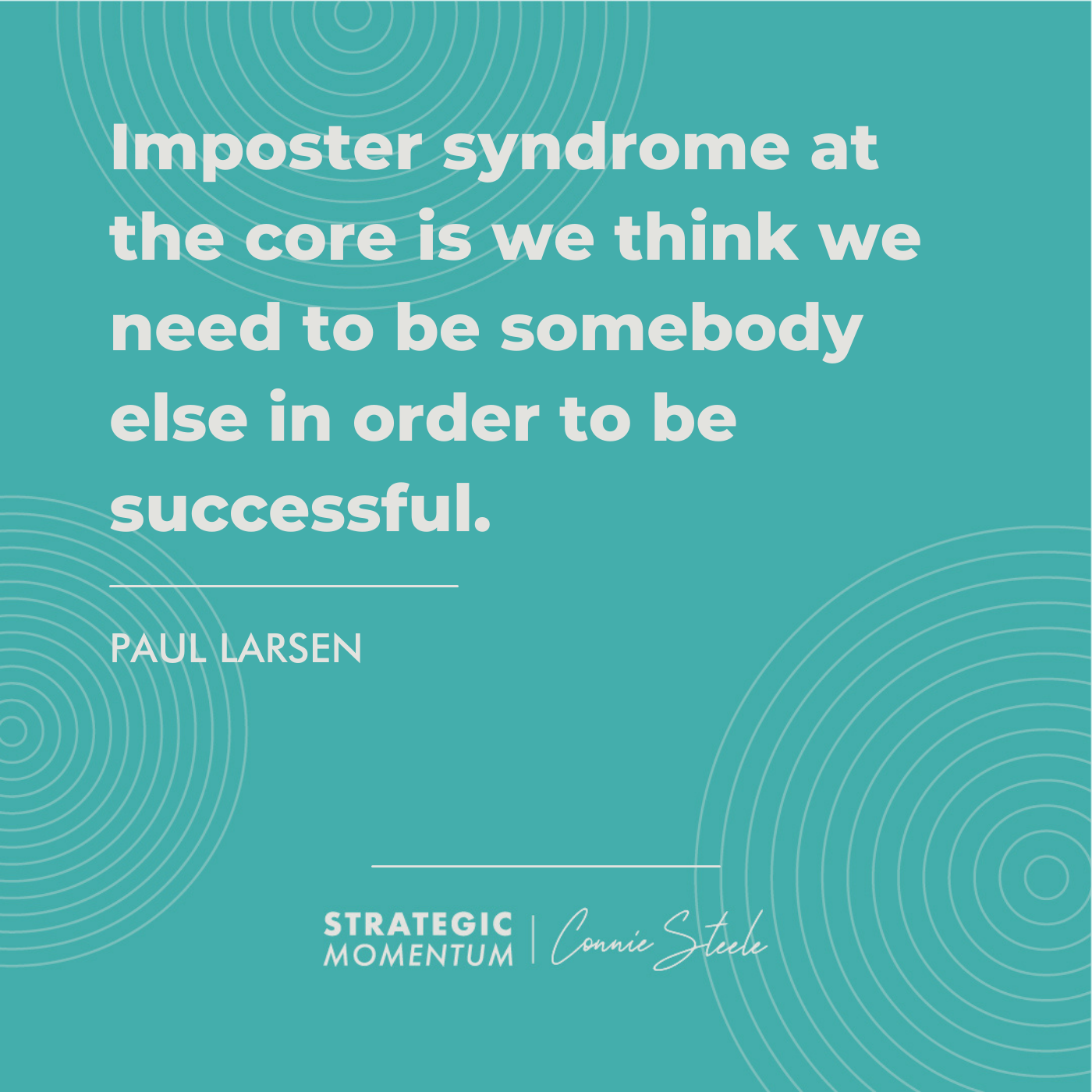Ep 143 - Imposter Syndrome and Finding Your Voice - with Paul Larsen
Find Us Wherever You Listen To Podcasts
I really wanted to start this season off with a conversation about something that I think has a way of worming its way into almost every area of every person’s life: imposter syndrome.
And what I love about this conversation with Paul Larsen is that he sees imposter syndrome as an inevitability for people with a growth mindset. If you’re not trying to do anything new, if you’re not trying to grow, then you’re probably not going to hear that little voice in the back of your head talking you down.
But when you think about taking a risk, when you start a new season of your life, we start to doubt ourselves — and, really, if I’ve learned anything after 143 episodes of this show, it’s how common this is.
When we understand that this is just a natural phenomenon that occurs in the human brain, then we can remind ourselves that we don’t need to overcome anything — it’s just a little hint that we’re growing. And Paul has some great advice for how we can start to reframe that feeling in every area of our lives.
Finding Paul’s Voice
When starting his career, Paul felt like he was supposed to be able to map it out, that there was supposed to be a linear sequence he could plan from A to Z. While it felt like everyone else around him in college were planning careers, getting internships where they’d like to work, and drafting up five-year plans, he was jumping around from major to major.
Paul ultimately landed on history, and looking back, he realizes that “understanding history is understanding cause and effect, understanding human behavior, and understanding triggers in human behavior,” all skills that would help shape his portfolio career. It might seem serendipitous, but I think this highlights the value of taking a test-and-learn approach to life — it lets you sample lots of things, throw out what doesn’t work for you, and lean into what does.
When Paul started his career, he ended up “letting himself go with whatever his interests were,” which took him into hospitality, sporting goods, air transportation and financial services. He was sampling various roles to see what fit. It became clear to his managers, but not immediately to Paul, that he had a knack for connecting with people and could be a positive force for change. He really understood human behavior. So he pivoted to HR, where he found surprising alignment. However, as he rose through the ranks, eventually becoming head of HR at one of JP Morgan’s portfolio companies, he started to feel fear, self-doubt, and an acute lack of self-confidence, even though he had been a successful executive for some time. It didn’t matter that he was doing well at the job or that he was qualified. Imposter syndrome still came for Paul.
After learning how to work through these feelings and perceptions of himself, he hit another career inflection point; the death of his father helped him realize the legacy he wanted to leave wasn’t going to be fulfilled in HR.
And at that point, he knew he needed to discover what was fulfilling, and it wasn’t going to be working in another job or company. So he eventually went solo as a consultant and ultimately fell into coaching, where he brought his innate talent to help leaders find their voice and truly lead authentically. As someone who had struggled to find his own voice, Paul was able to integrate all of his skills and experiences into the perfect toolset to guide and support others.
Definition of Success:
“What am I doing for myself that will propel me to serve others in the world?”
Key Takeaways:
Imposter syndrome at the core is we think we need to be somebody else in order to be successful.
80%+ of successful professionals have reported feeling like an imposter at some point in their careers. It is a feeling that runs the gamut of all age groups, all genders, all industries, all roles.
The triggering effects of imposter syndrome is when we find ourselves being out of our comfort zone or find ourselves in a situation in a new situation of some kind. Further, imposter syndrome is a byproduct of a growth mindset. So next time you start to feel that way, remind yourself that it wouldn’t be coming up if you weren’t creating something new.
Next time you feel that voice creeping up in the back of your head, doubting you, try to take a moment to remind yourself of Paul’s Three A’s: awareness, advocacy, and action. This trains you to respond first, instead of reacting.
Bring awareness to the feeling. Remind yourself that 90% of successful people feel this way at some point in their lives, too, and they’re not all just faking it. This feeling comes for everyone, and incompetence is not a prerequisite.
Advocate for yourself. Remember that you wouldn’t be feeling this way if you weren’t trying to grow, trying to create something new. And that alone is impressive.
And then take action on whatever that voice was trying to hold you back from doing.
This isn’t going to magically make all of the fear go away, but these constant reminders that we’re normal for feeling this way, that it only happens because we’re trying to be a little better than we were yesterday, can slowly but surely allow you to reclaim your power from that fear.
Instead of overcoming imposter syndrome, learn how to live with it and eventually be able to dilute it.
Resources
Learn more at https://www.paulnlarsen.com/
LinkedIn: https://www.linkedin.com/in/paulnlarsen/
Instagram: https://www.instagram.com/findyourvoiceasaleader/








